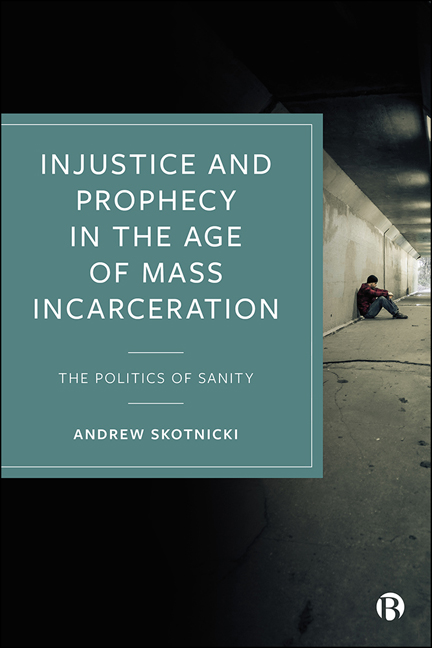Conclusion
Published online by Cambridge University Press: 12 October 2022
Summary
We began our study by asking a question and stating a premise. The question was why so many people classed as intellectually handicapped spend their days, not in therapeutic settings, or in group homes, or under the care of a counselor or therapist, but in jail and prison cells. We then proceeded to state the premise that those so “handicapped,” at the least, make those of us in “polite society” uncomfortable, and more commonly, threaten and terrify us. It should now be no secret that our penal facilities are literally overwhelmed by people whose cognitive machinery computes the meaning of their and our lives through a lens crafted by psychological and spiritual perceptions far different than that of the “normal” man or woman.
This leaves us with a paradoxical challenge: either we continue to indulge our alarm and, frankly, disgust at this population and continue to support and underwrite its forced removal from civic participation, or we realize that it is our cognitive and ethical structures that require reformation. We must, hearkening back to the moral treatment phenomenon, change our thought patterns to see no ontological, moral, or (for the most part) organic difference between us and them. Furthermore, we must then “think” them out of confinement and imagine them living side by side with us before their enforced exile and debasement can come to an end. The latter presents a daunting challenge on two fronts: for those who have been expelled from the social world and for those who in one way or another underwrite their expulsion . For the free community, it requires socioeconomic, psychological, therapeutic, and spiritual amendment. As to the first, as Brenner argues, “it is … through the controlling instrument of the economy that the vast majority of social and individual objectives are achieved.” The economic colossus, especially in the regnant neoliberal philosophy, with its Social Darwinist roots, has laid a crushing burden on the world's poor: the hapless and desperate who both figuratively and literally cling to unstable and deadly rafts in a sea of indifference and, often, hostility as they hope against hope that a better life lies for them somewhere.
- Type
- Chapter
- Information
- Injustice and Prophecy in the Age of Mass IncarcerationThe Politics of Sanity, pp. 133 - 140Publisher: Bristol University PressPrint publication year: 2022



